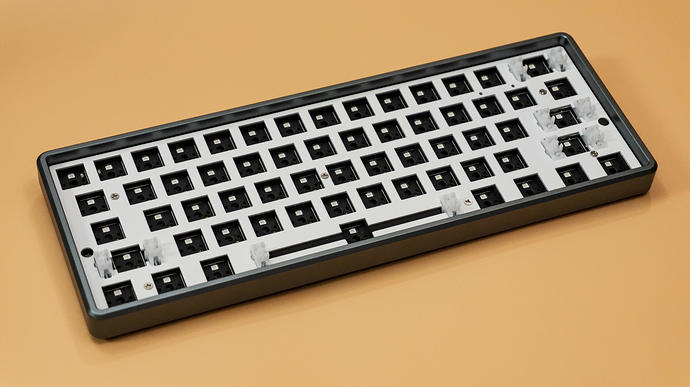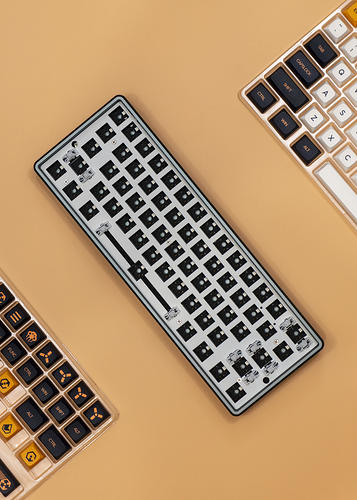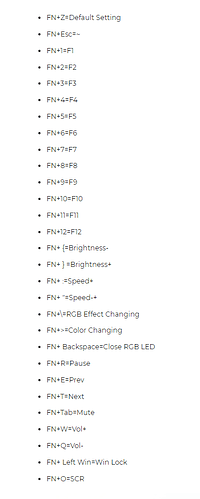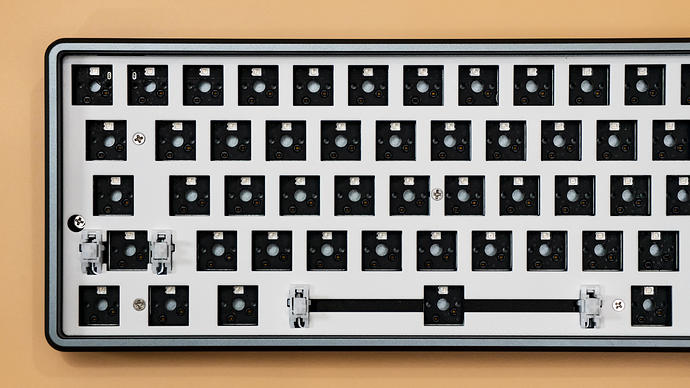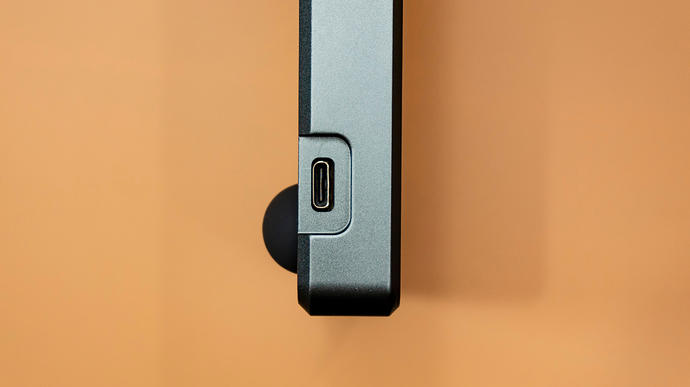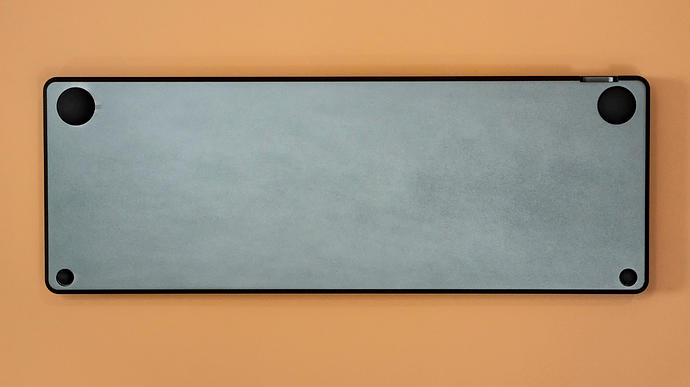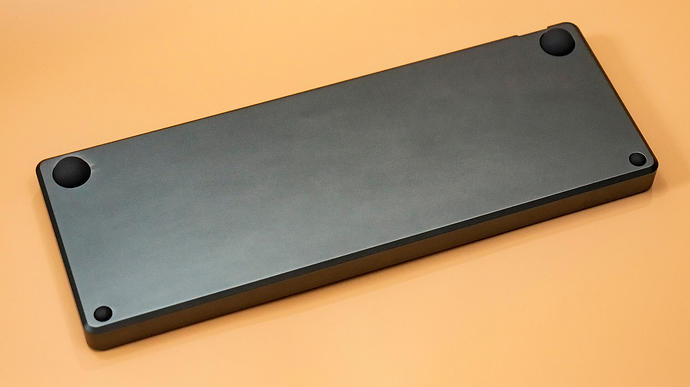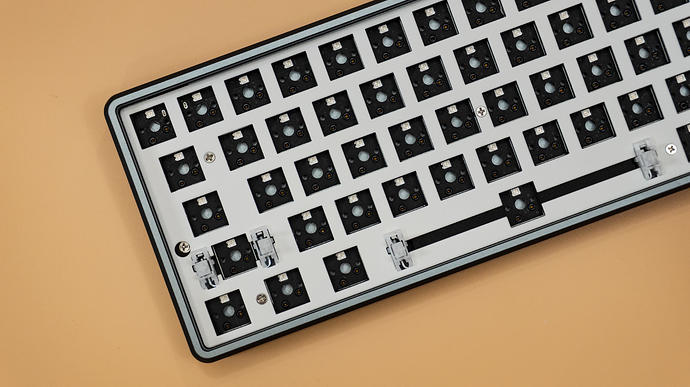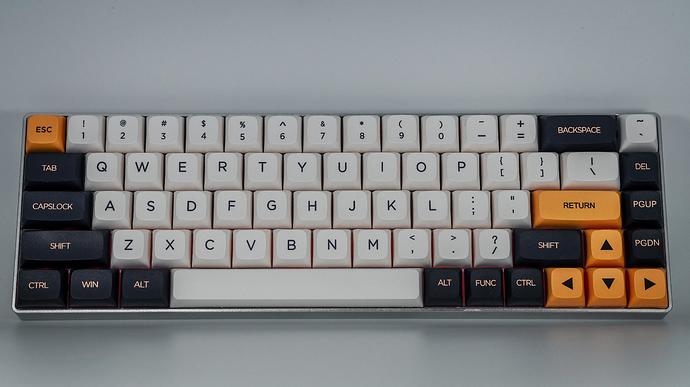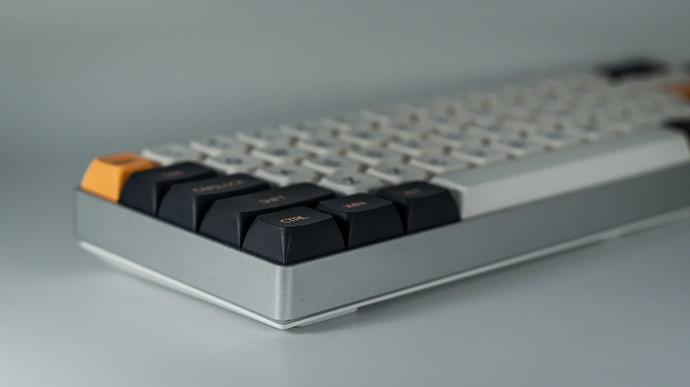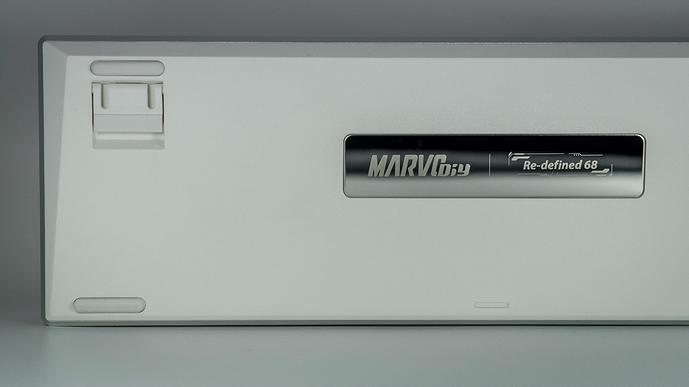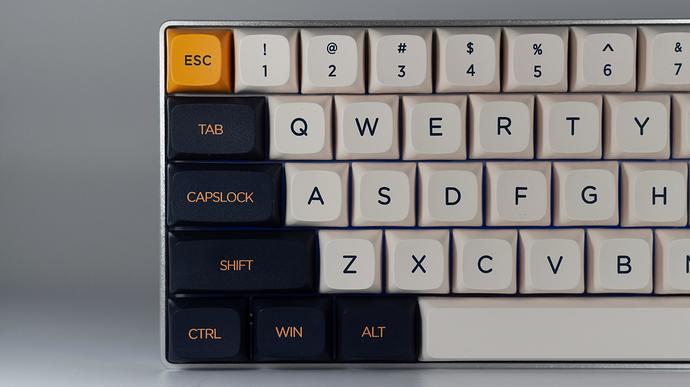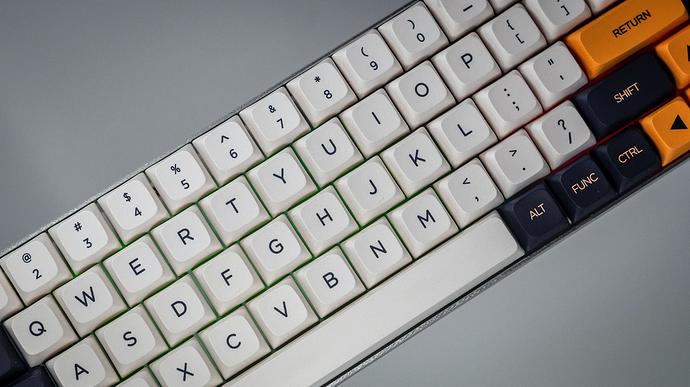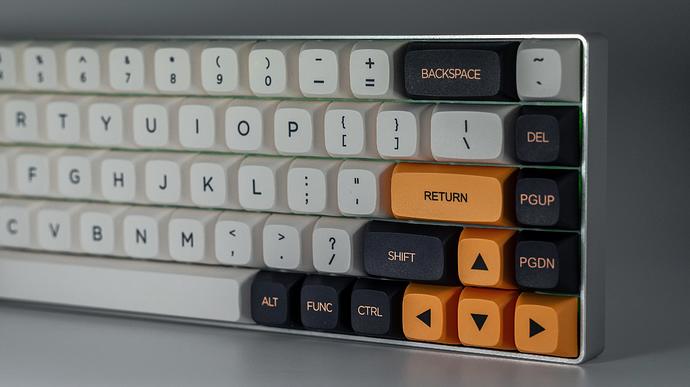The MarvoDIY Undefined 61 (UD61) is a 60% keyboard kit that retails for $149. MarvoDIY sent me the UD61 in exchange for an honest review. MarvoDIY also included the “Back to Peace” dye-sublimated PBT keycap set in XDA profile with my board.
My review sample shipped in minimalist, unbranded packaging, which I do not expect to be the case for the final retail product. Besides the board itself, the package included a minimalist metal keycap puller, a plastic switch puller, and a braided USB-C to USB-A cable.
The package did not include any documentation besides a thank-you card addressed to MarvoDIY’s initial batch of reviewers. The most important missing element here for me is the absence of a manual listing the UD61’s shortcuts. I was able to locate a list of the UD61’s shortcuts on MarvoDIY’s Discord server:
In comparison to other keyboards I have used, this is a fairly minimal set of stock shortcuts. One significant omission from this list is directional keys. The user cannot add to this list, and the default function key cannot be remapped. As a result, the user must define an FN1 key to get directional keys.
The Keyhome software has no documentation and is not particularly intuitive on the key remapping side. However, the LED controls are simple and more intuitive than those in the software associated with SKxx/GKxx rebrands. That said, Keyhome does not offer the same level of granular control over the LEDs. The RGB lighting itself is very bright and consistent across the board. The LEDs are north-facing, which is typical of pre-built keyboards. This unfortunately limits compatibility with Cherry profile keycaps.
The UD61 uses a tray-mounted design. The PCB allows for the hotswapping of switches, which saves me a lot of trouble and heartache as someone without a high-quality soldering kit. There is a thick foam sheet between the plate and the PCB. The stabilizers are plate-mounted, not screw-in.
The form factor of the case is clean and minimal. The case appears to be machined out of a single slab of gunmetal grey anodized aluminum. The case has a thin bezel and rounded corners. A recessed USB-C port is located at the top left-hand corner of the board.
The build quality of the UD61 is nearly immaculate. The anodizing on my unit was flawless to my eyes and I could not detect any imperfections in the machining other than a faint mark across the USB-C recession. There are no external screws on the case. There is zero branding on the UD61, and the bottom of the case, at least in the case of my review unit, lacks any kind of engraving or identifying marks. I prefer this, especially for a more budget-friendly board. I also think it fits with the manufacturer’s stated philosophy of allowing the user to define the board.
There are four round rubber feet, the two top feet significantly larger than the bottom ones. The case itself does not have any kind of angle. The size differential of the larger top rubber feet to the smaller bottom feet does create a minute typing angle, but I would have liked more of one.
I used JWICK Yellow switches for this build for most of my review process, which I bought through a group buy held by creameryco. They expect to have some extras for sale soon, so keep an eye out for those. I also used Akko Radiant Red switches with the UD61 towards the beginning of my review process. Neither of these switches were hand-lubed for my review.
With the JWICK Yellows, the UD61 has a deep but clacky sound profile. The board is pretty quiet out of the box, even with un-lubed switches. This is likely a result of the case foam. The board does sound a little hollow despite the foam. Though the stabilizers feel fine to use, their sound is inconsistent out of the box, with varying amounts of rattle. The level of rattle is mild to moderate without any kind of modding. I will mod these as soon as I can.
The typing experience on this board is very fluid. I do bottom out pretty hard while typing on this keyboard, but I am still getting used to typing on a lighter linear switch compared to the Gateron Blacks I used on my daily driver up until recently. I plan on hand-lubing the Akko Radiant Red switches and trying those again in this board. I will update my impressions down the line as I get more of a feel for the board and the switches.
I have not experienced any kind of key chatter, dropouts, or other connectivity issues during my time with the UD61. This is more than I can say for several of the other prebuilt keyboards I have evaluated.
I noted in my review of the Akko 3061 that I am not the biggest fan of the 60% form factor. I frequently use my directional keys on keyboards that have them. In general, I am still not as comfortable with the use of modifiers, function key shortcuts, and layers as I would like to be. According to their website, MarvoDIY will also be launching 71-key kits in aluminum and polycarbonate case varieties. If you don’t think a 60% keyboard will work for you, these are worth keeping an eye out for.
Overall I think this is a competitive keyboard in a difficult price bracket. $150 is more expensive than many plastic case prebuilt keyboards but less expensive than virtually all metal case custom keyboards. With the UD61, you get a more premium build than the cheapest pure enthusiast keyboards offer but at the cost of QMK/VIA support. I hope that as MarvoDIY develops the Keyhome software further this becomes less of a drawback. I really would like to see a firmware update that addresses the function key limitations specifically. The physical product here is impressive, and I hope it receives the firmware and software to match it with time.
The MarvoDIY UD61can be purchased at the link below:
Undefined 61 Keyboard Kit — MARVODIY (marvopro.com)
Use the code “FirstOrder” for 10% off.
MarvoDIY will be holding a giveaway on their Discord server to celebrate the launch of the UD61. A temporary link to the Discord server is below:
If you liked this review and you also like headphones, please consider checking out my blog at:
